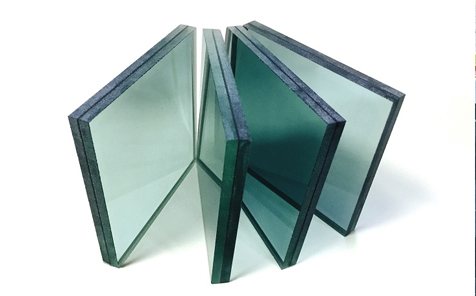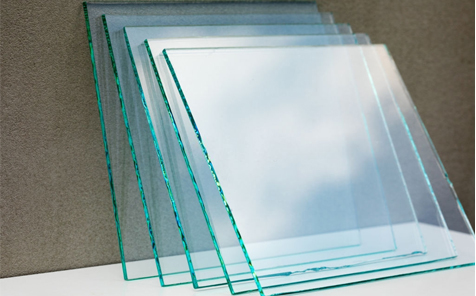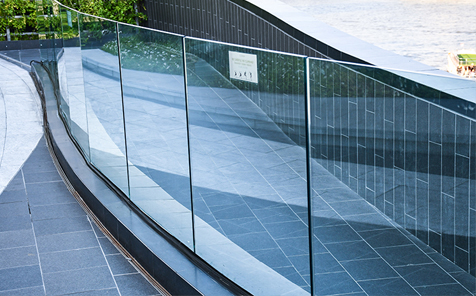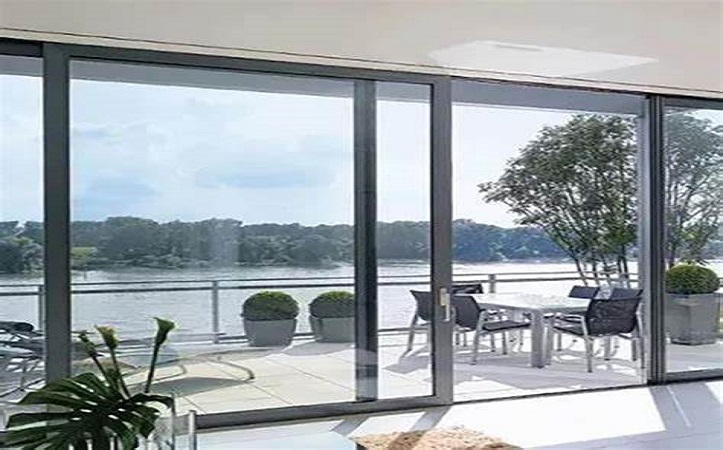Heat-strengthened glass is cooled at a faster rate than regular annealed glass. The cooling rate affects the strength of the finished glass. While it is stronger, it can break into large, sharp shards when shattered and not suitable for safety purposes such as shower doors. Tempered glass is cooled at an even faster rate than heat-strengthened glass. Tempered glass is heated in a uniform manner and then cooled rapidly by blowing air on both sides simultaneously making it about four times stronger than normal glass. This process does not alter the properties of normal annealed glass and it retains its color, stiffness, and other characteristics.
Tempered glass manufacturing
The glazing process for tempered glass begins with a preparation stage that includes cutting the glass to the desired size and examining the glass for imperfections. Next, the glass is put through a heat treatment in which the glass is heated to 600 degrees Celsius.
The heating treatment is followed by “quenching”, a high-pressure cooling procedure in which the glass is cooled in seconds. The quenching cools the outer surface of the glass more quickly than the center leaving the center in tension and the outer surface in compression, this is what gives tempered glass its strength.
The added endurance caused by the differential heating means the glass can be stretched or pulled to a certain limit without breaking.
Benefits of tempered glass
- Safety: Tempered glass reduces the risk of injury due to its nature of breaking into small, circular pieces instead of sharp, jagged shards.
- Easy clean up: Tempered glass isn’t indestructible. If the glass breaks it fractures into small fragments instead of large, jagged pieces.
- Strength: Tempered glass is incredibly durable.
Tempered glass application
Tempered glass uses are varied and include doors, windows, partitions, handrails, stairs, facades, car windows, refrigerator shelves, cookwares and more. Tempered glass is best employed in situations where it might be necessary to break the glass in an emergency, such as on a fire extinguisher cabinet.
Related Products
- Address
No.3 Beishang New City, GongShu District, Hangzhou China
-
Phone
+86-18072735884
-
Landline
+86-571-88688170

 English
English










